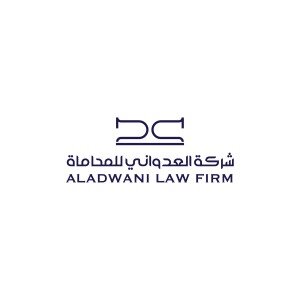Best Mortgage Lawyers in Kuwait City
Share your needs with us, get contacted by law firms.
Free. Takes 2 min.
Free Guide to Hiring a Real Estate Lawyer
List of the best lawyers in Kuwait City, Kuwait
About Mortgage Law in Kuwait City, Kuwait:
Mortgage law in Kuwait City, Kuwait governs the legal aspects of borrowing money to purchase real estate property. It involves agreements between lenders and borrowers regarding the use of the property as collateral for the loan. Understanding mortgage laws is essential to ensure a smooth and lawful transaction.
Why You May Need a Lawyer:
You may need a lawyer for various reasons related to mortgage transactions, such as reviewing and negotiating mortgage contracts, resolving disputes with lenders, understanding legal obligations, and ensuring compliance with local laws and regulations. A lawyer can provide legal advice, represent you in court if needed, and help protect your rights throughout the mortgage process.
Local Laws Overview:
In Kuwait City, Kuwait, mortgage laws are governed by the Kuwaiti Civil Law and related regulations. Key aspects of local laws include requirements for mortgage contracts, rights and responsibilities of lenders and borrowers, procedures for foreclosure, and legal remedies in case of default. It is crucial to be familiar with these laws to avoid legal complications.
Frequently Asked Questions:
1. What is the legal process of obtaining a mortgage in Kuwait City, Kuwait?
In Kuwait, the legal process of obtaining a mortgage involves submitting an application to a lender, agreeing to terms and conditions of the loan, signing a mortgage contract, registering the mortgage with the relevant authorities, and fulfilling all legal requirements for the transaction to be valid.
2. What are the common types of mortgages in Kuwait City, Kuwait?
Common types of mortgages in Kuwait include conventional mortgages, Islamic mortgages compliant with Sharia law, variable-rate mortgages, fixed-rate mortgages, and mortgages with different repayment terms and conditions tailored to borrowers' needs.
3. What are the legal rights and obligations of borrowers in mortgage transactions?
Borrowers have the legal right to use the property as collateral for the loan, make timely payments, maintain the property in good condition, and comply with all terms and conditions of the mortgage contract. Failure to meet these obligations may result in legal consequences.
4. What are the legal remedies for lenders in case of borrower default?
Lenders have legal remedies in case of borrower default, such as foreclosure of the property, repossession of the collateral, sale of the property to recover the outstanding debt, and legal actions to enforce the terms of the mortgage contract.
5. How can a lawyer help with mortgage disputes in Kuwait City, Kuwait?
A lawyer can provide legal advice, negotiate with lenders on behalf of borrowers, represent clients in court proceedings, enforce legal rights, protect interests, and ensure compliance with local laws and regulations in mortgage disputes.
6. What are the legal implications of mortgage refinancing in Kuwait City, Kuwait?
Refinancing a mortgage in Kuwait involves entering into a new loan agreement with revised terms and conditions, paying off the existing mortgage, and obtaining a new loan secured by the property. It is essential to understand the legal implications and obligations of refinancing a mortgage.
7. How can borrowers protect their legal rights in mortgage transactions?
Borrowers can protect their legal rights in mortgage transactions by reviewing all terms and conditions of the mortgage contract, seeking legal advice from a qualified lawyer, ensuring compliance with local laws, maintaining accurate records, and acting promptly in case of disputes or defaults.
8. What are the key considerations for choosing a mortgage lender in Kuwait City, Kuwait?
Key considerations for choosing a mortgage lender in Kuwait include interest rates, repayment terms, fees and charges, customer service, reputation, financial stability, flexibility of loan terms, and compliance with legal requirements. It is essential to compare lenders and choose the most suitable one for your needs.
9. What are the legal requirements for mortgage registration in Kuwait City, Kuwait?
In Kuwait, mortgage registration involves submitting relevant documents to the Real Estate Registration Department, paying registration fees, obtaining approval from the authorities, and ensuring compliance with all legal requirements for the mortgage to be legally valid and enforceable.
10. How can borrowers avoid legal pitfalls in mortgage transactions in Kuwait City, Kuwait?
Borrowers can avoid legal pitfalls in mortgage transactions by seeking legal advice from a qualified lawyer, understanding all terms and conditions of the mortgage contract, conducting due diligence on the property, maintaining clear communication with the lender, and complying with all legal requirements throughout the transaction.
Additional Resources:
For additional resources related to mortgage law in Kuwait City, Kuwait, you may contact the Kuwaiti Ministry of Justice, the Kuwait Bar Association, legal aid organizations, real estate agencies, and qualified legal professionals specializing in mortgage law.
Next Steps:
If you need legal assistance in mortgage matters in Kuwait City, Kuwait, consider consulting with a reputable law firm specializing in real estate law and mortgage transactions. A qualified lawyer can provide personalized advice, represent you in legal proceedings, and help protect your rights throughout the mortgage process.
Lawzana helps you find the best lawyers and law firms in Kuwait City through a curated and pre-screened list of qualified legal professionals. Our platform offers rankings and detailed profiles of attorneys and law firms, allowing you to compare based on practice areas, including Mortgage, experience, and client feedback.
Each profile includes a description of the firm's areas of practice, client reviews, team members and partners, year of establishment, spoken languages, office locations, contact information, social media presence, and any published articles or resources. Most firms on our platform speak English and are experienced in both local and international legal matters.
Get a quote from top-rated law firms in Kuwait City, Kuwait — quickly, securely, and without unnecessary hassle.
Disclaimer:
The information provided on this page is for general informational purposes only and does not constitute legal advice. While we strive to ensure the accuracy and relevance of the content, legal information may change over time, and interpretations of the law can vary. You should always consult with a qualified legal professional for advice specific to your situation.
We disclaim all liability for actions taken or not taken based on the content of this page. If you believe any information is incorrect or outdated, please contact us, and we will review and update it where appropriate.















